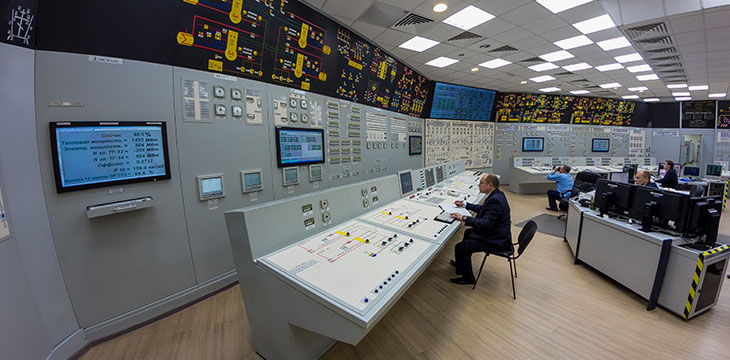|
Getting your Trinity Audio player ready...
|
After reports of unauthorized use reached Russia’s Federal Security Service, several engineers were arrested at a covert nuclear facility. According to reports, the scientists attempted to connect the facility’s supercomputer to the internet to run a cryptocurrency mining program.
Russian news agency Interfax reported that the arrest involved several top engineers from All-Russian Research Institute of Experimental Physics (RFNC-VNIIEF) whose facility is located at Sarov in the Nizhny Novgorod region. “Indeed, there was an attempt to make unauthorized use of computer facilities for personal purposes, including for so-called (cryptocurrency) mining,” said Tatyana Zalesskaya, head of the Research Institute’s press service.
The Research Institute at Sarov is known for its involvement in creating the USSR’s first nuclear bomb during the Stalin regime. Sarov is a restricted city with residents and visitors placed under travel regulation, with officials releasing permits to anyone going in or out.
Back in 2011, the Russian Federal Nuclear Center based in Sarov was one of the world’s most powerful supercomputers, ranking 12th at the time, rated with 1 petaflop of computing power. Without taking a chip’s internal architecture and other hardware factors such as thermal equivalencies, the Sarov facility’s processors are highly capable of producing a significant amount of hashing power.
However, cryptocurrency enthusiasts are quick to note that CPU speeds almost always vary in performance when compared to GPUs, which have a fundamentally different caching and memory architecture. The computation also differs because hashrates are based on integer operations, while FLOPS (floating-point operations per second) involves approximate, real number representations.
A recent cryptocurrency-related attack on a SCADA (supervisory control and data acquisition) network operating high-end water facilities across Israel, the U.S. and the UK was disclosed by cybersecurity solutions company Radiflow, setting a precedent for industry and government facilities to tighten security. Russian authorities are now actively looking into previously overlooked loopholes in their state-run facilities.
Russia’s low-cost energy reserves have attracted both investors and cryptocurrency mining players, with entire power stations reportedly being sold for the purpose. In the wake of such events, cryptocurrency users from the Bitcoin Cash community would be wise not to be involved with such fraudulent activities. This is because the general public and media may confuse the cryptocurrency for legacy Bitcoin or SegWit1x (BTC), which has been used in such illegal activities as those that took place in the infamous Silk Road arrests in 2014.

 02-26-2026
02-26-2026 




